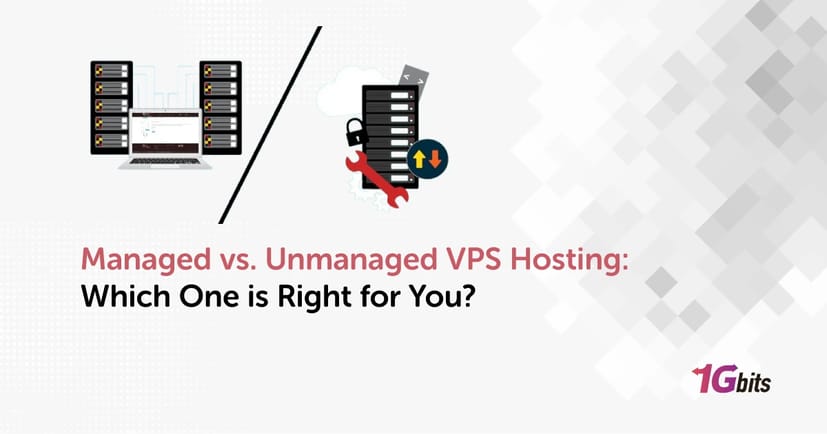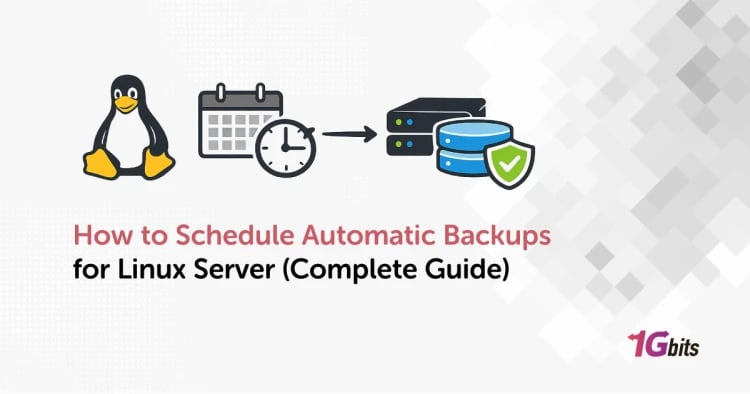Choosing between Managed vs. Unmanaged VPS Hosting is a crucial decision for anyone looking to optimize their website or application. In the debate of managed vs unmanaged VPS hosting, managed solutions offer convenience by handling server management tasks like updates, security, and monitoring, making them ideal for users without technical expertise. On the other hand, unmanaged VPS grants complete control over your server but requires advanced skills for configuration and maintenance. The choice of managed VPS vs unmanaged comes down to your priorities—do you need ease of use or full customization? While the best managed VPS hosting ensures reliability and support, the best unmanaged VPS hosting appeals to those seeking flexibility and lower costs. For those balancing budget and functionality, cheap managed VPS hosting offers an affordable middle ground. Exploring managed vs unmanaged VPS highlights the trade-offs between autonomy and assistance in modern web hosting solutions. You can buy Managed VPS with visiting Managed VPS Hosting or Umanaged VPs with viewing Unmanaged VPS Hosting.
What is Managed VPS?
A Managed VPS (Virtual Private Server) is a hosting solution where the service provider takes care of the server’s technical management, including software updates, security patches, server monitoring, and backups. Unlike an unmanaged VPS, where the user is responsible for all aspects of server management, a managed VPS simplifies operations, making it ideal for users with limited technical expertise. The choice between managed vs unmanaged VPS hosting often comes down to your technical skill set, time availability, and hosting needs.
If you're looking for a reliable and hassle-free VPS hosting solution, consider buying VPS hosting with managed services that handle all the technical aspects for you, allowing you to focus on your business or project without worrying about server management.
One of the key benefits of a Managed VPS is its focus on convenience and reliability. Businesses and developers can offload time-consuming server tasks to their hosting provider, ensuring optimal performance and security without requiring in-depth knowledge of server administration. This advantage makes a managed VPS a preferred choice for businesses running critical applications, e-commerce websites, or any platform requiring consistent uptime and security. In contrast, an unmanaged VPS vs managed VPS comparison reveals that unmanaged solutions cater to those who prefer flexibility and complete control over their server environment.

In the realm of managed vs unmanaged VPS hosting, managed services often include round-the-clock technical support. This ensures immediate assistance in case of issues like downtime, configuration errors, or cybersecurity threats. Moreover, a Managed VPS offers enhanced scalability, making it easier to adapt resources as your business grows. This scalability aligns with the needs of modern businesses relying on scalable VPS solutions to handle fluctuating traffic and demand without downtime or performance lags.
When considering managed vs unmanaged VPS hosting mac options, businesses using macOS-based environments can also benefit from the seamless integration and support offered by managed hosting providers. These services ensure compatibility and optimized performance, regardless of the platform being used.
You can further enhance your hosting experience by exploring cheap VPS options, which offer cost-effective solutions without compromising on performance or reliability. These affordable VPS plans can be tailored to meet your specific needs, whether you're looking for managed or unmanaged hosting.
A Managed VPS is an excellent choice for users who value time efficiency and want to focus on growing their business rather than dealing with server management complexities. Hosting providers often include a user-friendly control panel, making it easy to perform basic tasks without delving into technical configurations. This ease of use is particularly beneficial for small to medium-sized enterprises, content creators, and startups looking for reliable hosting solutions without a steep learning curve.
Comparing unmanaged VPS vs managed VPS in terms of cost highlights a common trade-off. While Managed VPS hosting typically comes with a higher price tag, the investment pays off through saved time, reduced technical challenges, and enhanced server reliability. In contrast, unmanaged hosting offers a cost-effective alternative for tech-savvy users willing to handle the complexities themselves.
In conclusion, the choice between Managed vs Unmanaged VPS Hosting boils down to individual requirements and expertise. A Managed VPS server is ideal for users seeking a hassle-free experience with professional support and robust security. With features like easy scalability, continuous monitoring, and user-friendly tools, managed hosting provides a comprehensive solution for modern web hosting needs. Whether you need a scalable VPS to grow your online presence or require specialized support for a specific platform like macOS, managed hosting is a reliable and efficient choice. If You would know Definition of VPS, read What Is VPS Hosting.
What is Unmanaged VPS?
An Unmanaged VPS (Virtual Private Server) is a hosting solution where the user is responsible for all aspects of server management. Unlike managed hosting, unmanaged VPS provides the hosting infrastructure but requires the user to handle tasks such as installing the operating system, configuring software, managing security updates, and monitoring server performance. When comparing Managed vs. Unmanaged VPS Hosting, unmanaged hosting is designed for individuals or businesses with the technical knowledge to independently operate and maintain a VPS.
If you're looking to test out the capabilities of a VPS before committing, consider exploring a trial VPS to evaluate its performance and suitability for your needs.
With unmanaged hosting, the hosting provider typically offers minimal support beyond ensuring the server’s hardware and network connectivity. Users are expected to troubleshoot issues, install necessary software, and ensure the server operates as intended. This is a key differentiator in the Managed vs. Unmanaged VPS Hosting debate, as managed hosting includes provider support for many of these tasks.

In the context of Managed vs. Unmanaged VPS Hosting, unmanaged options are particularly suited for advanced users who require full control over their VPS environment. Users have root access, enabling them to customize the server to meet specific needs without the restrictions that might accompany a managed hosting plan. However, this level of control comes with the expectation that users are familiar with server management practices, including troubleshooting and system maintenance.
An unmanaged VPS is essentially a blank slate, where the hosting provider delivers the server hardware and network connectivity. Users then build their environment from the ground up, deciding on the operating system, software, and configurations. This contrasts sharply with managed hosting, where much of the setup and maintenance is performed by the hosting provider. For those navigating the Managed vs. Unmanaged VPS Hosting decision, unmanaged hosting represents a more hands-on and customizable solution.
When choosing between Managed vs. Unmanaged VPS Hosting, it’s important to understand that unmanaged VPS hosting requires significant time and expertise. Without provider support, users must monitor server performance, apply updates, and ensure proper functionality. This independence distinguishes unmanaged VPS hosting from managed solutions, where the hosting provider offers comprehensive assistance.
To further explore the best options for VPS hosting and compare various rental plans, you can check out our detailed guide on VPS Rental. This will help you understand the factors to consider when selecting a VPS hosting solution that aligns with your business needs.
In some cases, users may seek unmanaged VPS hosting for platforms like macOS environments, highlighting another angle of the Managed vs. Unmanaged VPS Hosting mac comparison. While managed hosting may simplify macOS-based setups, unmanaged hosting grants users full control over installation and configurations.
Finally, unmanaged VPS hosting supports scalable VPS solutions, allowing users to increase server resources as their needs grow. While scalability is a feature shared with managed hosting, unmanaged hosting places the responsibility of resource management and adjustments squarely on the user. In the larger context of Managed vs. Unmanaged VPS Hosting, scalability in unmanaged environments highlights the balance between control and responsibility that defines this hosting approach.
By focusing entirely on user-led server management, unmanaged VPS hosting is a powerful option for those with the skills to handle it. In the ongoing comparison of Managed vs. Unmanaged VPS Hosting, unmanaged solutions emphasize control and independence, appealing to those who value flexibility over convenience.
Pros & Cons of unmanaged vps vs managed vps
When considering Managed vs. Unmanaged VPS Hosting, it’s essential to understand the advantages and disadvantages of each option. Unmanaged VPS hosting provides more control but requires technical expertise, whereas managed VPS hosting offers convenience with full server management by the provider. Below, we explore the pros and cons of each hosting type, allowing you to choose the right one based on your needs and technical abilities. If You would know Pros and Cons of VPS Advantages and Disadvantages, read VPS Advantages and Disadvantages.
1. Control and Flexibility
|
Unmanaged VPS |
Managed VPS |
|
Pro: Offers complete control over the server environment, including operating system choice and software configurations. |
Pro: No control over server management. The provider handles everything, so users can focus on their core business. |
|
Con: Requires advanced technical skills to configure and maintain the server. |
Con: Limited control, as the hosting provider takes care of server maintenance and updates. |
-
Unmanaged VPS gives you root access, enabling total customization.
-
Managed VPS involves a provider taking over most tasks, limiting customization options.
2. Technical Support
|
Unmanaged VPS |
Managed VPS |
|
Pro: Ideal for experienced users or businesses with an in-house IT team. |
Pro: Full technical support from the provider, including troubleshooting and regular updates. |
|
Con: No support from the hosting provider. You’re responsible for troubleshooting and resolving issues. |
Con: Support may come at an extra cost or be limited based on the plan you choose. |
-
Unmanaged VPS means you handle all server issues, offering flexibility but no external assistance.
-
Managed VPS offers peace of mind with professional support for any technical challenges.
2. Cost
|
Unmanaged VPS |
Managed VPS |
|
Pro: Typically more affordable, as there is no additional cost for server management. |
Pro: Offers more value in terms of time saved on maintenance and troubleshooting. |
|
Con: Additional costs may arise from hiring external support or consultants for issues. |
Con: Generally more expensive due to the provider managing everything for you. |
-
Unmanaged VPS is a cost-effective option for users who have the technical expertise to manage the server themselves.
-
Managed VPS typically comes with a higher price tag, but this includes support and management services.
4. Maintenance and Updates
|
Unmanaged VPS |
Managed VPS |
|
Pro: Users have the freedom to choose when and how updates and patches are applied. |
Pro: The hosting provider handles all server updates, patches, and maintenance. |
|
Con: Responsibility for keeping the server up-to-date and secure falls entirely on the user. |
Con: Updates are handled automatically, which may lead to some lack of flexibility in scheduling. |
-
Unmanaged VPS puts you in control of when updates and patches occur, offering flexibility but demanding vigilance.
-
Managed VPS ensures that updates are applied regularly, reducing the risk of security issues but with less flexibility.
5. Performance and Scalability
|
Unmanaged VPS |
Managed VPS |
|
Pro: Full control over server resources, allowing for customization and optimization based on specific needs. |
Pro: Scalable plans available that allow you to grow without needing to worry about server management. |
|
Con: Users must manually optimize the server for performance, which requires technical know-how. |
Con: Scalability might be limited to certain plans or involve higher costs for adding resources. |
-
Unmanaged VPS offers the flexibility to scale the server as needed, but requires user input for optimization.
-
Managed VPS provides scalable plans and support, making it easy to adjust resources without extra hassle.
6. Suitability for Different Users
|
Unmanaged VPS |
Managed VPS |
|
Pro: Best suited for tech-savvy users or those with an in-house IT team who need full control over the server environment. |
Pro: Ideal for individuals or businesses who lack technical expertise and prefer a hassle-free hosting experience. |
|
Con: Not suitable for beginners or those who do not have the technical knowledge to manage the server. |
Con: May not offer enough customization for users who want full control over their hosting environment. |
-
Unmanaged VPS is great for developers and businesses who can handle server management independently.
-
Managed VPS is perfect for those who prefer to avoid technical details and rely on expert support for server maintenance.
In the Managed vs. Unmanaged VPS Hosting debate, the right choice depends on your needs and expertise. If you have the technical skills to manage a server, an unmanaged VPS offers flexibility and cost savings. However, if you prefer convenience and professional support, a managed VPS may be the better option despite its higher cost. The decision between unmanaged VPS vs managed VPS comes down to control versus convenience, with each solution offering its unique set of advantages.
You can also consider the geographical location of your VPS server, as it can play a key role in performance. If you're interested in learning more about choosing the ideal location for your VPS, check out our detailed guide on VPS Location.
Managed vs. Unmanaged VPS Hosting: Main Differences
When comparing Managed vs. Unmanaged VPS Hosting, it’s essential to understand how each type of hosting works and the key differences that separate them. Both offer dedicated server resources and scalability, but the level of management, control, and technical expertise required differs significantly. This section will explore the fundamental differences between Managed vs. Unmanaged VPS Hosting, focusing on server control, support, maintenance, cost, and scalability.

1. Server Control and Customization
One of the most significant differences between Managed vs. Unmanaged VPS Hosting is the level of control you have over the server.
|
Unmanaged VPS |
Managed VPS |
|
Control: Users have full root access, allowing complete freedom to configure, install, and optimize the server as they see fit. |
Control: The hosting provider handles server management tasks, which limits user control. Users typically can manage only certain aspects of the server through a control panel. |
|
Customization: Provides the ability to choose any operating system, install custom software, and configure the server to meet specific needs. |
Customization: Customizations are often limited to pre-configured environments provided by the hosting provider. |
|
Technical Expertise: Requires advanced knowledge of server management to handle configurations, troubleshooting, and custom setups. |
Technical Expertise: Minimal technical knowledge is required since the provider manages most of the technical tasks. |
-
Unmanaged VPS gives you full control and flexibility over your environment, making it ideal for users who need specific software setups and configurations.
-
Managed VPS focuses more on convenience, as the provider handles most server configurations, but this comes at the cost of reduced customization.
2. Support and Maintenance
Support and maintenance differ significantly in Managed vs. Unmanaged VPS Hosting. The level of support varies, with managed hosting offering comprehensive assistance, while unmanaged hosting leaves most responsibilities to the user.
|
Unmanaged VPS |
Managed VPS |
|
Support: Minimal support is provided by the hosting provider, typically limited to hardware and network-related issues. Users are expected to resolve software-related problems themselves. |
Support: Full support is provided for server management, including updates, troubleshooting, and security management. Users can contact support for issues related to software, configuration, and more. |
|
Maintenance: The user is responsible for ongoing maintenance, including software updates, security patches, and system optimizations. |
Maintenance: The hosting provider handles updates, security patches, and other maintenance tasks to ensure the server is running smoothly. |
· Unmanaged VPS places the responsibility for maintenance and troubleshooting entirely on the user, requiring significant technical know-how.
· Managed VPS offers round-the-clock support, with the provider handling updates, security, and system management tasks.
3. Cost Comparison
Cost is a crucial factor when considering Managed vs. Unmanaged VPS Hosting. The price difference is largely due to the level of support and services provided by each hosting type.
|
Unmanaged VPS |
Managed VPS |
|
Cost: Generally more affordable since the user is responsible for managing the server, reducing the need for professional support. |
Cost: More expensive due to the inclusion of comprehensive management and support services. |
|
Value: For users with technical skills, unmanaged VPS offers more value as it provides more freedom at a lower price. |
Value: Provides convenience and peace of mind with ongoing support, but at a higher cost. |
· Unmanaged VPS is a cost-effective option for users who are comfortable handling the server management themselves.
· Managed VPS comes at a premium but offers professional management and support, making it a better choice for those who prefer to avoid technical tasks.
4. Security and Backups
Security is a critical aspect when deciding between Managed vs. Unmanaged VPS Hosting. Both hosting types offer secure environments, but the approach to security management varies significantly.
|
Unmanaged VPS |
Managed VPS |
|
Security: The user is responsible for implementing security measures, including setting up firewalls, antivirus software, and performing regular updates to protect the server. |
Security: The hosting provider ensures the server is secured with proactive security measures such as firewalls, malware scans, and DDoS protection. |
|
Backups: Users must configure and manage backups themselves, ensuring the system is backed up regularly to prevent data loss. |
Backups: Backups are typically included as part of the service, with the hosting provider performing regular, automated backups. |
-
Unmanaged VPS gives users full control over security and backup measures, but this requires proactive management.
-
Managed VPS offers built-in security and backup solutions, reducing the risk of data loss and vulnerabilities.
5. Performance and Scalability
When it comes to Managed vs. Unmanaged VPS Hosting, performance and scalability are similar across both types, but the management process can differ.
|
Unmanaged VPS |
Managed VPS |
|
Performance: Users have complete control over performance optimization, including resource allocation, server tuning, and software installations. |
Performance: The provider ensures optimal performance through regular maintenance, system updates, and resource optimization. |
|
Scalability: Unmanaged VPS plans are typically scalable, allowing users to adjust resources such as CPU, RAM, and storage as needed. However, users must handle the process of upgrading resources. |
Scalability: Managed VPS offers scalability with the hosting provider handling the upgrade process for the user. Users can easily request additional resources as needed. |
· Unmanaged VPS offers flexibility and control over performance tuning and scaling, but the user must take on the responsibility of managing upgrades.
· Managed VPS simplifies the scaling process by providing the necessary support to adjust server resources quickly and efficiently.
6. Suitability for Different Users
The decision between Managed vs. Unmanaged VPS Hosting also depends on the user's experience level and specific needs.
|
Unmanaged VPS |
Managed VPS |
|
Best For: Tech-savvy users, developers, or businesses with in-house IT teams who have the skills to manage a server and require maximum flexibility. |
Best For: Beginners, small businesses, or users who prefer to focus on their business rather than server management and need professional support. |
|
Not Ideal For: Beginners, users without technical knowledge, or anyone who doesn’t want to deal with server maintenance. |
Not Ideal For: Users who require full server control and customization or have specific technical needs that can’t be met with a managed solution. |
· Unmanaged VPS is best for users who want complete control and are capable of managing the server independently.
· Managed VPS is ideal for those who value convenience and prefer to leave server management to the experts.
7. Control Over Software and OS
In Managed vs. Unmanaged VPS Hosting, control over the operating system (OS) and software installation is another key area of difference.
|
Unmanaged VPS |
Managed VPS |
|
Software and OS Control: Users can choose any operating system and install custom software without limitations. Full flexibility in terms of software configurations. |
Software and OS Control: The hosting provider typically uses a pre-configured OS, and custom software installations may be limited or require additional permissions. |
|
Installations: Users have the freedom to install any software or applications required for their specific needs. |
Installations: Providers may have pre-configured software or application stacks that users must work within. |
-
Unmanaged VPS offers total flexibility in choosing the OS and software, making it ideal for users with specific technical requirements.
-
Managed VPS offers predefined environments, with less flexibility for custom software setups but with the benefit of provider-supported solutions.
8. Updates and Upgrades
When it comes to Managed vs. Unmanaged VPS Hosting, the process of handling updates and upgrades is another key distinction.
|
Unmanaged VPS |
Managed VPS |
|
Updates: Users are responsible for updating the server’s software, including the operating system, security patches, and third-party applications. |
Updates: The hosting provider handles all updates, including system patches and application upgrades, ensuring the server remains secure and optimized. |
|
Upgrades: Users can manually upgrade the server’s resources (e.g., CPU, RAM), but this requires technical expertise and coordination. |
Upgrades: Managed VPS solutions allow users to request and implement upgrades easily, with the provider handling the technical details. |
· Unmanaged VPS offers full control over updates and upgrades, but users must handle them independently.
· Managed VPS simplifies the process by automating updates and upgrades, ensuring the server is always running the latest, most secure software.
In the debate of Managed vs. Unmanaged VPS Hosting, the best option depends on your technical expertise and business needs. Unmanaged VPS offers complete control and flexibility at a lower cost but requires a high level of technical skill to manage the server. On the other hand, Managed VPS simplifies server management with professional support and ongoing maintenance, making it ideal for users who prefer convenience and support at a higher price point. By understanding the key differences between these two hosting types, you can make an informed decision that best fits your needs, whether you’re looking for flexibility or convenience.
Conclusion
In conclusion, choosing between Managed vs. Unmanaged VPS Hosting ultimately depends on your technical expertise and specific hosting needs. If you have the skills to manage server configurations, software installations, and ongoing maintenance, Unmanaged VPS Hosting offers greater control and flexibility at a lower cost. However, it requires a strong technical foundation and can be time-consuming. On the other hand, Managed VPS Hosting is ideal for users who prefer convenience and don’t have the time or expertise to handle server management. It provides professional support, automatic updates, and security management, but at a higher price. Both options have their merits, with Managed vs. Unmanaged VPS Hosting catering to different user preferences. Whether you prioritize control and customization or prefer a hassle-free, managed environment, understanding these distinctions can help you select the best hosting solution for your needs.




![What Is Cold Data Storage? ❄️ [2026 Guide] What Is Cold Data Storage? ❄️ [2026 Guide]](https://1gbits.com/cdn-cgi/image//https://s3.1gbits.com/blog/2026/02/what-is-cold-data-storage-750xAuto.webp)
![What Is Virtual Desktop Infrastructure? 🖥️ [VDI Explained] What Is Virtual Desktop Infrastructure? 🖥️ [VDI Explained]](https://1gbits.com/cdn-cgi/image//https://s3.1gbits.com/blog/2026/02/what-is-virtual-desktop-infrastructure-vdi-750xAuto.webp)

![How to Change VPS Password 🔑 [Windows & Linux] How to Change VPS Password 🔑 [Windows & Linux]](https://1gbits.com/cdn-cgi/image//https://s3.1gbits.com/blog/2025/12/how-to-change-your-vps-password-750xAuto.webp)


